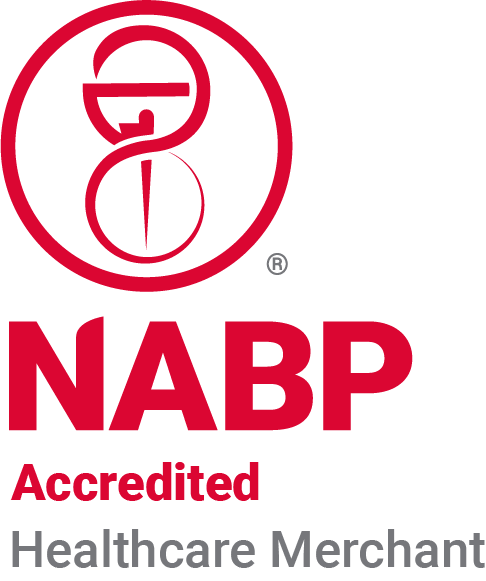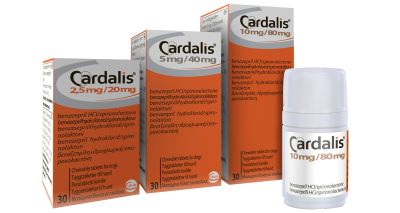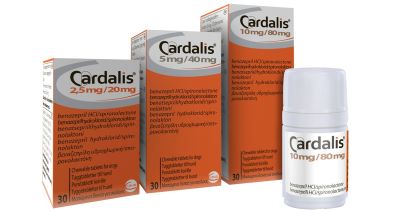Providing Quality & Trust || Clinic Website
Cardalis Tablet
Ceva Animal Health
$61.88 - $135.64
$61.88 Each
Detailed Description
Cardalis Tablet
Description
Cardalis for dogs is used to treat congestive heart failure when it has been caused by chronic degenerative valvular disease. Each oblong Cardalis tablet contains a fixed combination Benazepril Hydrochloride and Spironolactone. Cardalis is used to treat animals that require both active substances to be administered concomitantly at this fixed dose. Cardalis tablets are often also used in conjunction with other medications, such as Vetmedin and Frusemide.
Congestive heart failure is when your dog’s heart has trouble pumping blood to the rest of the body. This can be caused by old age, an injury or an infection. In some cases, dog’s can be born with this defect.
Early symptoms can be:
- Coughing more than usual
- Tiring easily
- Hard time breathing
- Swollen belly
Cardalis is also available as 2.5mg/20mg, 5mg/40mg and 10mg/80mg doses to accommodate different sizes and breeds of dog.
Key Benefits
- Unique Combination
- Greater efficacy compared to benazepril alone
- Actives recommended by ACVIM guidelines
- Chewable tablets for Dogs
Indications
CARDALIS is indicated with concurrent therapy (e.g. furosemide, etc.) for the management of clinical signs of mild, moderate, or severe congestive heart failure in dogs due to atrioventricular valvular insufficiency (AVVI).
Directions
View Cardalis Drug Facts Sheet.
CARDALIS administration should begin after pulmonary edema is stabilized. CARDALIS should be administered orally once daily at a dose of 0.9 mg/lb (2 mg/kg) spironolactone and 0.11 mg/lb (0.25 mg/kg) benazepril hydrochloride, according to dog body weight using a suitable combination of whole and/or half tablets. All tablet strengths are scored and the calculated dosage according to dog's weight should be to the nearest half-tablet increment. CARDALIS should be administered with food.
Contraindications:
Do not administer CARDALIS in conjunction with non-steroidal anti-inflammatory drugs (NSAIDs) in dogs with renal insufficiency. Do not administer CARDALIS to dogs with hypoadrenocorticism (Addison's Disease), hyperkalemia, or hyponatremia. Do not administer CARDALIS to animals with known hypersensitivity to ACE inhibitors or spironolactone.
Warnings:
Keep CARDALIS in a secure location out of reach of dogs, cats, and other animals to prevent accidental ingestion or overdose. In case of accidental overdose, induce vomiting, lavage the stomach (depending on risk assessment), and monitor electrolytes. Symptomatic therapy (e.g. fluid therapy) should be provided as medically necessary. CARDALIS is only for use in dogs with clinical evidence of heart failure.
Human Warnings:
Not for use in humans. Keep this and all medications out of the reach of children. Consult a physician in case of ingestion by humans.
Precautions:
The safety and effectiveness of concurrent therapy of CARDALIS with pimobendan has not been evaluated.
Renal function and serum potassium levels should be evaluated prior to initiating treatment with CARDALIS. Regular monitoring of renal function and serum potassium levels is recommended as there may be an increased risk of hyperkalemia.
Dogs undergoing combined treatment with CARDALIS and NSAIDs should be adequately hydrated to avoid renal toxicity.
Concomitant use of desoxycorticosterone pivalate (DOCP) with spironolactone may counter the effect of DOCP as DOCP has an opposing mechanism of action to potassium-sparing diuretics like spironolactone. Closely monitor dogs receiving digoxin and spironolactone. Spironolactone decreases digoxin elimination and hence raises digoxin plasma concentration. This may result in digoxin toxicity.
Spironolactone and benazepril hydrochloride undergo extensive hepatic biotransformation. Care should be taken when using CARDALIS in dogs with hepatic dysfunction.
The safety of CARDALIS has not been evaluated in growing dogs. Spironolactone has an antiandrogenic effect and should be used with caution in growing dogs. The safety of CARDALIS has not been established in pregnant, lactating or breeding dogs.
Storage:
Store at controlled room temperature, 20° to 25°C (68° to 77°F), in original container. Excursions permitted between 15°C and 30°C (between 59° and 86°F).

Powered by nopCommerce
This site is running in live payment mode. Real payments will be processed.

